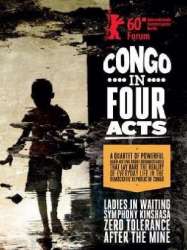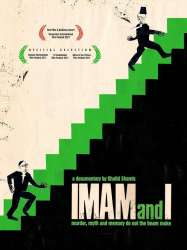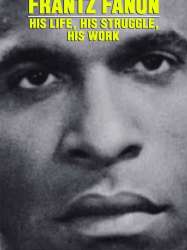Films with theme "Documentary films about politics", sorted by revenue

Le Président (2010)
Directed by Yves Jeuland
Origin France
Genres Documentary
Themes Politique, Documentaire sur une personnalité, Documentary films about politics, Political films
Yves Jeuland a filmé la campagne de Georges Frêche pour les élections régionales de mars 2010. La campagne est marquée par une polémique liée à un article sorti dans L'Express sur une phrase de Georges Frêche à l'encontre de Laurent Fabius. À la suite de cette polémique, la première secrétaire du parti socialiste décide de présenter une liste contre Georges Frêche.

Syntoniser Amani (2008)
, 1h15Origin Espagne
Genres Documentary
Themes Films set in Africa, Documentary films about politics, Political films
After the ikiza (the Burundi killings of Hutu intellectuals in 1972), the Burundi refugees exiled in Tanzania founded the Party for the Liberation of the Hutu People. Its armed representative is the NLF, the National Liberation Front. In 2006, after prolonged negotiations with the opposition and the Army, the president of Burundi made a public call, over the radio, to all NLF soldiers asking them to step away from the armed front and voluntarily join the peace process. Within this context, Tune in to Peace enters the lives of three young people: Désiré, Jean Claude and Jérémie, all ex members of the NLF.

Behind the rainbow (2008)
, 2h18Origin Egypte
Genres Documentary
Themes Politique, Documentary films about politics, Political films
Behind the Rainbow explores the transition of the African National Congress (ANC) from its role as a liberation organization to its position as South Africa's ruling party, by means of the evolution of the relationship between two of its most prominent leaders, Thabo Mbeki and Jacob Zuma. Exiled under Apartheid, brothers in arms following Mandela's leadership, they loyally labored to build a non-racial state. Now they are bitter rivals. Their confrontation threatens to tear apart the ANC and the country, mean while the poor desperately seek hope in change and the elite fight for the spoils of victory.

Neighbors (2009)
, 1h45Directed by Tahani Rached
Origin Egypte
Genres Documentary
Themes Films set in Africa, Documentary films about politics, Political films
Built at the dawn of the 20th century, the neighborhood of Garden City was a small residential area bordering on downtown Cairo, Egypt, where international political leaders had their residences. Giran walks us through this neighborhood as it is nowadays. Abandoned mansions, luxurious salons, embassies, shops or rooftops, where a whole family lives. The houses and their occupants, witnesses of the changes in History, tell tales of break-ups, hopes and survival.

Congo in Four Acts (2010)
, 1h12Directed by Dieudonné Hamadi
Origin South africa
Genres Documentary
Themes Films set in Africa, Documentary films about politics, Political films
Initiated as an educational project to help young filmmakers develop their craft, Congo in Four Acts is a quartet of short films. Ladies in Waiting chronicles the bureaucratic dysfunctions of a maternity ward from which women cannot leave unless they pay their fees. Symphony Kinshasa takes the viewer on a tour through Congo’s capital city where malaria is rife, electricity cables lie in the street and garbage is everywhere. Zero Tolerance deals with rape as a weapon of war in Eastern RDC and the attempts by authorities to re-establish the national moral code. After the Mine depicts life in Kipushi, a mining town where the soil is contaminated.

Directed by Jules Falardeau
Origin Quebec
Genres Documentary
Themes Politique, Sports films, Boxing films, Documentary films about sports, Documentaire sur une personnalité, Documentary films about politics, Political films, Le boxe anglaise, Documentary films about Quebec politics
À travers une rencontre intimiste supportée de séquences vidéo et d'images d'archives, le document nous présente le rôle marquant de ce chevalier de l'indépendance dans l'évolution du mouvement indépendantiste au Québec des années 1960.
 , 1h19
, 1h19Directed by Ritu Sarin, Tenzing Sonam
Origin Inde
Genres Documentary
Themes Films about writers, Films about religion, Films about Tibet, Documentary films about politics, Documentary films about religion, Political films, Films about Buddhism

Françafrique (documentaire) (2011)
, 2h40Origin France
Genres Documentary
Themes Politique, Documentary films about politics, Political films
Il y a 50 ans, en 1960, les 14 colonies françaises d'Afrique noire devenaient indépendantes. Mais indépendance ne signifie pas liberté: le général de Gaulle confie à Jacques Foccart la mise en place d'un système qui vise à garder, par tous les moyens, légaux ou illégaux, le contrôle de nos anciennes colonies dont les matières premières, et le pétrole en particulier, sont vitales pour la France.
 , 52minutes
, 52minutesOrigin Algerie
Genres Documentary
Themes Films set in Africa, Films about immigration, Documentary films about law, Documentary films about war, Documentary films about historical events, Documentaire sur une personnalité, Documentary films about politics, Political films
In 1939, the end of the Spanish Civil War forced thousands of men, women and children to flee Francoist Spain. The French administration in Algeria opened refugee camps to take them in. Seventy years later, a young Algerian investigates the past. Despite the absence of archives and files, the traces of these camps have survived the collective oblivion and still appear in current Algeria.

Kafka au Congo (2010)
, 59minutesOrigin Belgique
Genres Documentary
Themes Films set in Africa, Documentary films about politics, Political films
Kafka au Congo is a tragicomic journey behind the scenes of Congo law and politics. Gorette's lands have been unfairly expropriated, and she has spent the last 15 years going from one office to another trying to have her case heard. But whenever she is given an appointment, something gets in the way, she has to grease another bureaucrat and she loses confidence. At the other end of the justice system is the parliamentary administrator, Bahati, in charge of Congo's national parliament’s finances, happily making a packet working the corrupt system.

The Killing of the Imam (2010)
, 10minutesOrigin South africa
Genres Documentary
Themes Films set in Africa, Films about racism, Documentary films about racism, Documentary films about law, Documentaire sur une personnalité, Documentary films about politics, Political films
In 1969, Imam Abdullah Haron was incarcerated and killed in detention in Cape Town, South Africa. A much loved community leader, he was active within an inactive community in raising awareness of the plight of his compatriots living under apartheid. During the 60s, Imam Haron became more active and began travelling abroad to raise funds for impoverished families back home. Mixing animation, documentary and stock footage, this short film looks at the last few years of the Imam's life and death. It is told by his grandson, the filmmaker, through the eyes of a child.

Trente tableaux (2011)
, 1h21Directed by Paule Baillargeon
Genres Documentary
Themes Feminist films, Politique, Documentary films about business, Documentary films about the film industry, Documentaire sur une personnalité, Documentary films about politics, Political films, Documentary films about Quebec politics, Autobiographical documentary films
Actors Paule Baillargeon
L’actrice et réalisatrice Paule Baillargeon retourne au pays de son enfance : l'Abitibi. Sur la route de Montréal à Val-d'Or, des instants qui ont marqué son existence resurgissent dans sa mémoire. À travers cet autoportrait hybride, Baillargeon raconte le parcours d’une femme, d'une féministe, d'une mère, d'une artiste.

Innocence of Muslims (2012)
, 14minutesDirected by Nakoula Basseley Nakoula, Alan Roberts
Origin USA
Themes Films set in Africa, Films about religion, Films about terrorism, Documentary films about law, Documentary films about war, Documentary films about historical events, Documentary films about politics, Documentary films about religion, Documentary films about terrorism, Political films, Films about Islam

The New Watchdogs (2012)
, 1h44Directed by Yannick Kergoat
Origin France
Genres Documentary
Themes Politique, Films about television, Documentaire sur les médias, Documentary films about politics, Political films
Les médias modernes aiment à se proclamer « contre-pouvoir », et se vanter de leur « indépendance », se constituant en rempart de la liberté de parole et de pensée. Pourtant, la grande majorité des journaux, des radios et des chaînes de télévision appartiennent à des groupes industriels ou financiers intimement liés au pouvoir économique et politique. Au sein d’un périmètre idéologique minuscule se multiplient les informations pré-mâchées, les intervenants permanents, les notoriétés indues, les affrontements factices et les renvois d’ascenseur.
 , 52minutes
, 52minutesOrigin Algerie
Genres Documentary
Themes Films set in Africa, Films about writers, Documentary films about law, Documentary films about historical events, Documentaire sur une personnalité, Documentary films about politics, Political films
This movie depicts Frantz Fanon's life. A psychiatrist from Martinique, he became a spokesman for the anti-colonialist struggle. In 1952, Frantz Fanon wrote Black Skin, White Masks, an analysis of racism and the ways in which its victims internalize it. In the 50s, he aided the rebels of the Algerian anti-colonial war. Expelled from Algeria in 1956, he moved to Tunis, Tunisia, where he wrote for the rebel newspaper El Moudjahid, founded one of Africa's first psychiatric clinics and wrote several books on decolonization. He died from leukemia in Washington, D.C., at the age of 36.
 Connection
Connection